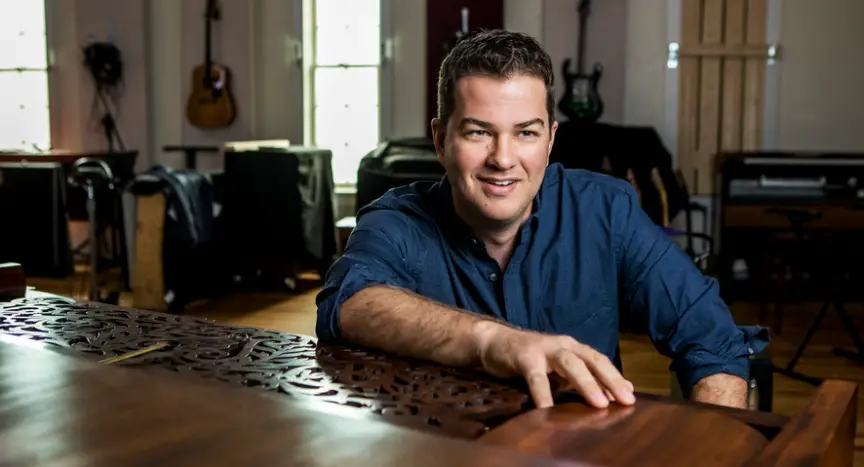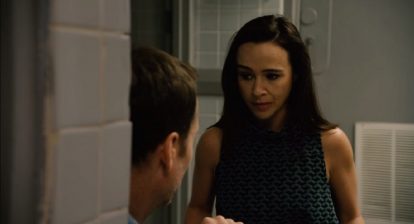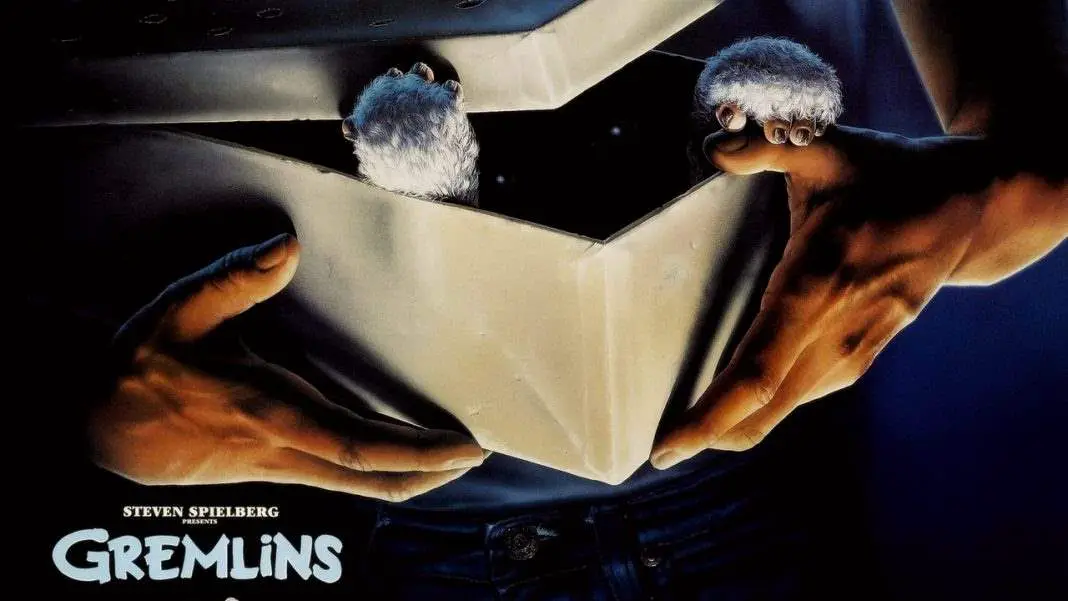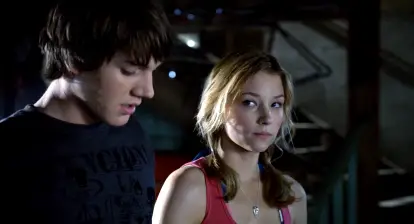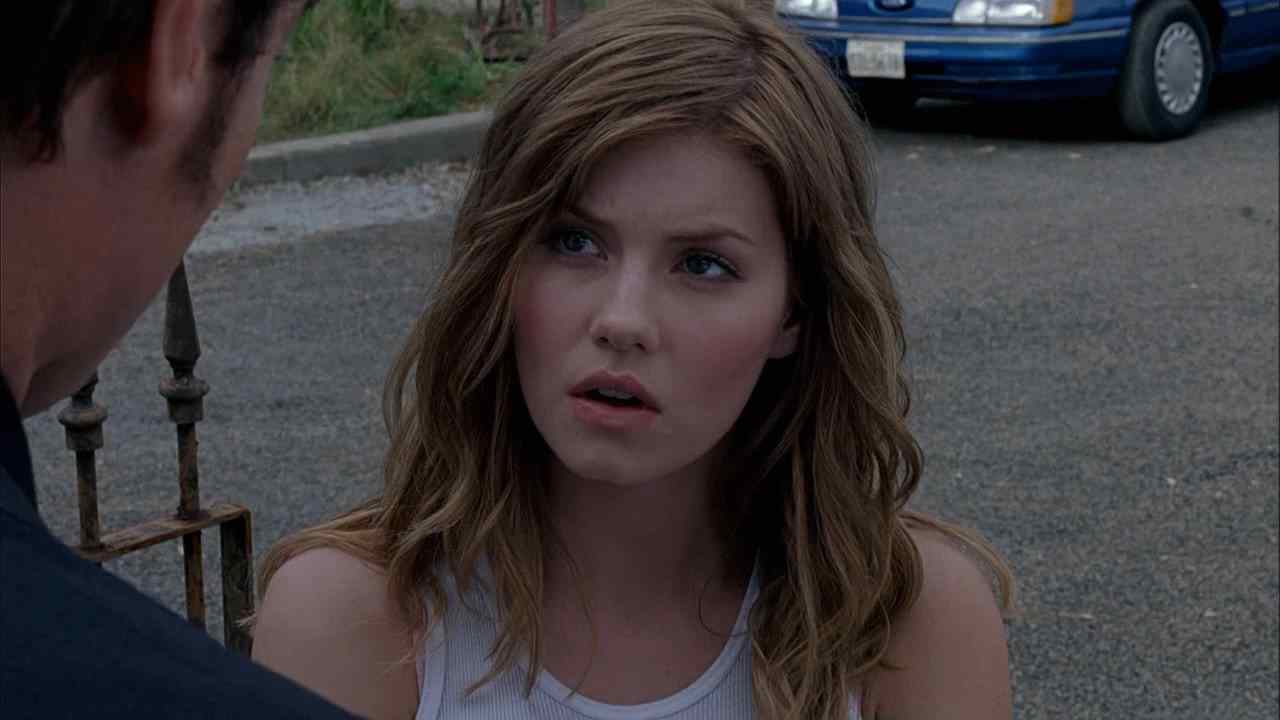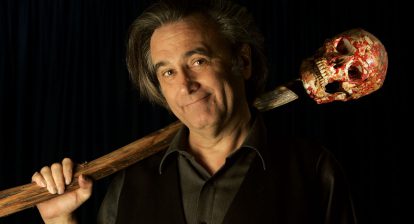What do horror legends like Joe Dante, Danielle Harris and Courtney Gains (Children of the Corn) all have in common? They are all involved with the new film, Camp Cold Brook, which will see release February 14th by Shout! Studios. The film follows reality TV producer and host Jack Wilson (Chad Michael Murray) as he finds himself in a tough spot with his show on the verge of being canceled. In a last ditch effort to spark ratings, he and his producer Angela (Danielle Harris) choose to film their next episode at the legendary Camp Cold Brook. The location was host to a horrific incident 20 years ago. Their arrival begins like any other episode, but the TV crew soon realizes they are in for more than they bargained for.
The flick was scored by the talented Chad Rehmann who scored the cult classic The Funhouse Massacre. Rehmann is fully aware that a good score is crucial to making quality horror and realizes that if done correctly, it can elevate the creepiness to another level. Accordingly, he takes his job very seriously. That means differentiating the many sounds/rules to the various horror subgenres. Where The Funhouse Massacre was a slasher flick, Camp Cold Brook is more of a psychological horror thriller, so it is scored using a completely different approach. Rehmann goes more in depth about this and much more in the exclusive interview below!
Wicked Horror: The film takes place in Oklahoma. And more specifically in the woods. How much did the setting influence your score?
Chad Rehmann: Before filming was even complete, the director (Andy Palmer) and I had decided to create two distinct worlds: the world outside the camp and the world inside the camp. For all of the scenes that take place outside of the camp, a more traditional orchestral score was written and recorded. For all of the scenes that take place inside the camp, a more avant-garde score was created using sounds that one would find in the woods, and more specifically at a summer camp in the woods. Before a note was written, my team and I spent a couple of weeks processing recordings that we had made of splashing water, twigs breaking, windows creaking, swing set chains, static from walkie-talkies and similar objects. This score definitely pushed me as a composer, as it was the first film that I’ve scored that heavily relied on sounds and instruments that were specifically created for a production.
WH: We won’t give away too much but when Angela (Danielle Harris) is watching the live monitor and sees something approaching the building she is in, there is a big punch, musically. How do you decide how loud/intense that is going to be?
Chad Rehmann: Hitting on screen scares is such a delicate balance. In films like Camp Cold Brook, I am constantly conversing with the director on whether or not to musically hit the scare (if at all) or hit the character’s reaction to the scare. Believe it or not, musically hitting a scare in the wrong spot can lessen the impact…or worse, make it less scary! In other instances, there are accompanying sounds that take place when a scare happens (a scream, a slice, a gunshot, etc) In my experience, it is always important to not intrude on any sonic space that is already being used. If, for instance, the director wants a musical hit when someone falls on screen, I try my best to surround the sonic space around the thud that’s already there. In other words, if the fall creates a deep boom, there is no sense in me duplicating that in the score since the boom is already there – so, I may instead using instruments or effects that are higher in the spectrum
WH: What would you say are some of the dos and don’ts of scoring a horror film?
Chad Rehmann: When I first started scoring films a little over 15 years ago, I had a tendency to overwrite. Sometimes in horror films, it is absolutely necessary to pull every tool out of your “composer toolbox” and hit the audience over the head with it; I have, however, come to appreciate how silence and simplicity can be just as effective. There were many times in this film where a few cello squeaks were all that was needed. If the script works and the actors are strong, sometimes we composers just need to get out of the way. For any score, not just horror, I think it is important for composers to have a concept in place before writing a single note. My grandfather was a carpenter, and he always told me, “Measure twice, cut once”. Having a plan in place will serve any composer well when they begin the scoring process.
WH: You have talked about working with Andy before and how he encourages you to experiment with different sounds/techniques. Was there anything that you tried with the score for Camp Cold Brook that didn’t work?
Chad Rehmann: Because children play such an important role in this film, I originally had considered creating a score with children’s voices being the dominant color. No matter what I tried, though, I just couldn’t make it work with the visuals – in fact, many of the sketches never even made it to the director because they never got to the place where I felt confident that it was a viable option! I did end up using children’s voices, however, by having my own kids scream during many of the crescendos and hits in the score. It’s not overt, but I do hope that blending that element into the score elicits a more visceral reaction from the audience during those moments. And, my kids had a blast doing it!
WH: What was the most challenging scene to score in Camp Cold Brook? Why?
Chad Rehmann: The most difficult scene for me is when we meet Jack’s (Chad Michael Murray) family in the beginning of the film. There are some tender moments between him and his wife and the interactions with his kids that needed to be scored, but how do you score “tender” in the Camp Cold Brook world? If it was a RomCom or holiday film, the scene would be a no-brainer in terms of how to score it. That scene, however, exists in a horror film so there is this delicate balance of staying true to the genre while acknowledging what’s happening on screen.

WH: You were trained as a contemporary composer for the concert hall. Did you ever think you would be scoring horror movies with this training?
Chad Rehmann: I love telling stories and always knew that I wanted to work in a collaborative medium such as film. That being said, scoring horror films was never on my radar. As work in that genre picked up, however, I found myself going back to old college textbooks and digging around in my “composer’s toolbox” for processes and techniques that I hadn’t thought about in years. That education has served me well.
WH: If you had to pick one, would you say the violin or piano delivers a more intense reaction to jump scenes?
Chad Rehmann: The standard response would be, “It depends”; however, I’m just gonna flat out answer the piano, and here’s why – the piano has twice the octave range as a violin and a variety of elements that can produce unique sounds (wood, cast iron, copper, steel, plastic, felt). When I’m scoring a film, I want as many options at my disposal as possible – so, having a piano would allow me to score the jump scene reaction 100 different ways. (And…cue violin enthusiasts shredding me in the comments section).
WH: Camp Cold Brook is more of a psychological horror thriller. Would you score a slasher horror film differently then a title from this genre?
Chad Rehmann: Psychological horror and slasher films are two very different animals. With psychological horror films, I think there’s more of a slow burn involved and often the first kill doesn’t happen until well into the second act – sometimes not until the end of the film! With slasher films, however, the audience is presented with a larger than life character and kills are happening every few minutes. For a composer, this means that there is a constant ramping up and down, and giving a lot of musical weight to the antagonist. I think slasher films, in general, allow you to go a bit bigger in terms of sound in order to sell the gravitas of the character. There’s also the fact that many slasher movies have a trauma element inherent in the killer’s past, which sometimes makes an audience connect with the murderer. How does a composer create themes that can be varied to evoke both empathy and fear…and sometimes in the same scene? It’s interesting that Camp Cold Brook does have some elements of a slasher film, namely a main character that is avenging a wrong in her past, but we hardly ever see her and…..well, it hasn’t come out yet, so I’ll leave it at that!
WH: You also scored the horror cult favorite, The Funhouse Massacre. Did you have a favorite scene to score in that film? If so, what was it?
Chad Rehmann: Talk about slasher films! I think one of the reasons that Funhouse Massacre was such a joy to work on, was because the characters that Ben Begley and Renee Dorian created were just so damn cool! There was a taxidermist which allowed me to use banjos on the score, a cult leader which allowed me to use soaring voices and strings, a murderous chef which allowed me to use forks and knifes as percussion instruments, and the list goes on and on. Part of the inspiration for that score also, was Metallica’s S&M concert with the San Francisco Symphony. I remember playing some of the tracks for Andy Palmer [who also directed Funhouse] and asking him to consider a metal meets orchestra score. He said “Let’s try it” and the rest is history!
*The film’s score is now available digitally on all major sites and psychically on chadrehmann.com.
Follow us on social media: Twitter, Facebook, Instagram, and YouTube!
